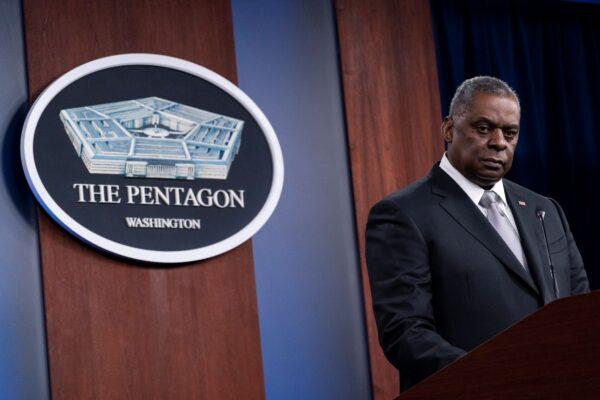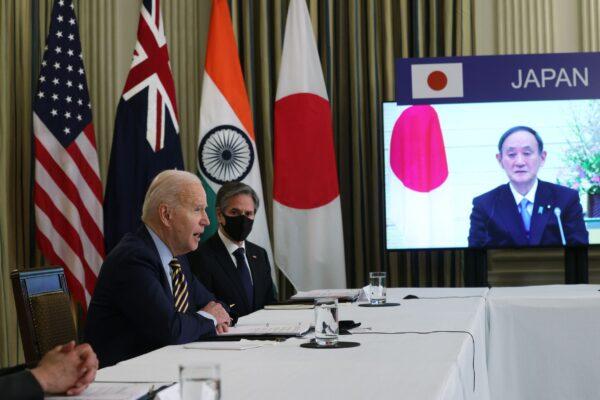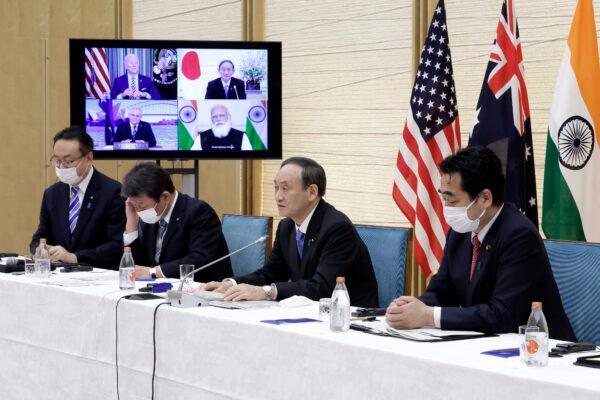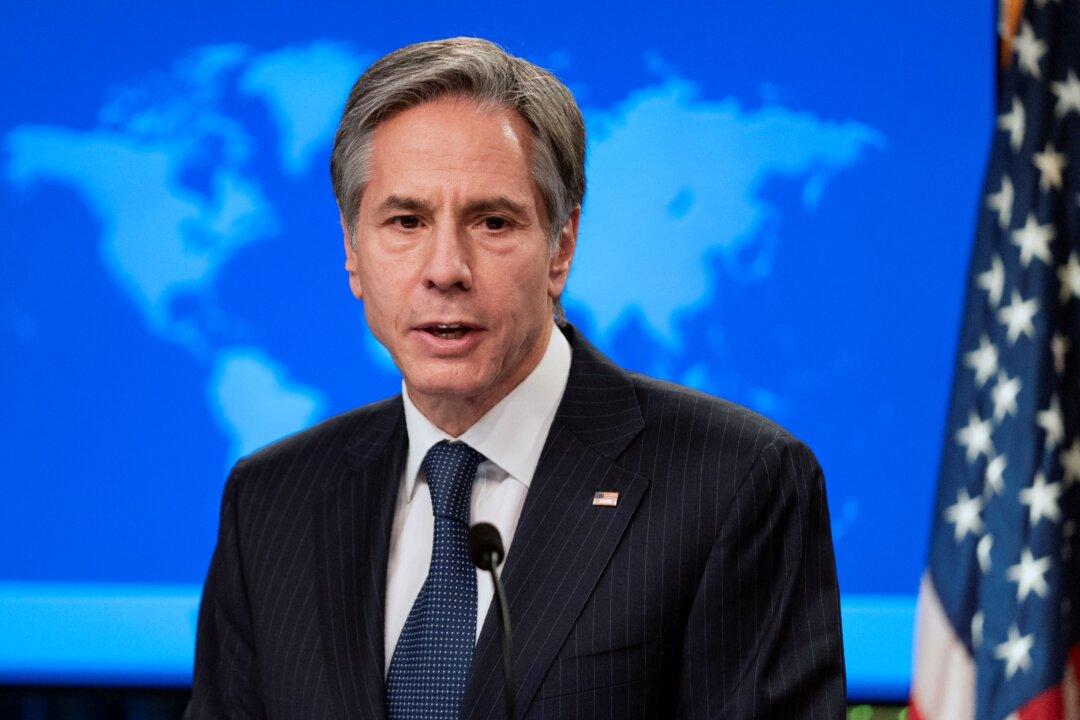TOKYO—Shared concerns about China’s growing influence in the Indo-Pacific region will take center stage when President Joe Biden’s defense chief and secretary of state visit Japan for their first in-person talks with their Japanese counterparts.
Defense Secretary Lloyd Austin and Secretary of State Antony Blinken arrived in Tokyo on March 15 for meetings meant to reaffirm America’s commitment to the region and to the two nations’ alliance.

The two secretaries will hold so-called “two plus two” diplomatic and security talks on March 16 with their Japanese counterparts, Foreign Minister Toshimitsu Motegi and Defense Minister Nobuo Kishi.
“The United States is now making a big push to revitalize our ties with friends and partners—both in one-to-one relationships and in multilateral institutions—and to recommit to our shared goals, values, and responsibilities,” Blinken and Austin said in a piece published March 15 in The Washington Post.
The United States and others share the values and principles of keeping an open Indo-Pacific region, but China is “all too willing to use coercion to get its way,” the two ministers said. “Here again, we see how working with our allies is critical.”
The U.S. will lead with diplomacy, maintain America’s military might, “and renew our alliances and ensure they’re fit for purpose to address the threats and opportunities of our time,” Blinken and Austin wrote. Together they can hold China accountable for its human rights abuses and other problems in Xinjiang and Tibet, as well as Hong Kong and Taiwan, they said.
Japan and the U.S. are also expected to reaffirm the importance of their three-way alliance with South Korea and may touch on the strained relations between Tokyo and Seoul over wartime compensation issues.
In a move meant to signal his intention for the U.S. to return to more engagement in the Asia-Pacific region, Biden on March 12 held a first summit of the leaders from Australia, Japan, India, and the U.S. known as the “Quad” virtually and emphasized Washington’s commitment to the region.
Motegi said in a parliamentary session on March 15 that he expected China to be the topic he and Blinken discussed most and that Japan being the first destination of their foreign travel signaled “the U.S. emphasis on the Japan-U.S. alliance.”
Motegi said he hoped to “show the rest of the world an unshakable unity” in the alliance and hoped to discuss how Japan and the U.S., through their alliance, can step up their deterrence and response capability in answer to China.
“Japan, together with the U.S., will resolutely respond to China’s unilateral attempt to change the status quo,” Motegi said. “But at the same time, China is the world’s No. 2 economy and it is important to firmly encourage that country to act responsibly based on international rules.”

Japan is in a delicate diplomatic situation because its economy, like those of other countries in the region, heavily depends on China.
But it also considers China’s growing presence in the region a security threat. Beijing has built militarized manmade islands in the South China Sea and is pressing its claim to virtually all of the sea’s key fisheries and waterways. Japan is concerned about China’s claim to the Japanese-controlled Senkaku Islands, called Diaoyu in China, in the East China Sea and its increased activity in the disputed area.
China has denied it is expansionist and said it is defending its territorial rights.
Chinese Foreign Ministry spokesperson Zhao Lijian said Monday that concerns about Chinese influence were rooted in “outdated Cold War mentality and ideological prejudices.”
“For some time, individual countries have been eager to hype and incite the so-called China challenge and drive a wedge between regional countries, especially with China,” Zhao said at a daily briefing. “But what they are doing ... is not welcome and will never succeed.”
On the Biden administration’s first Cabinet-level trip abroad, Blinken and Austin are also expected to discuss the coronavirus pandemic and climate change, as well as the nuclear threat posed by North Korea and the situation in Myanmar after its military coup.

Later Tuesday, they will meet with Japanese Prime Minister Yoshihide Suga, who is expected to visit Washington sometime in the first half of April to meet with Biden in person—becoming the first foreign leader to do so.
Blinken and Austin also plan to have virtual meetings with business leaders, civil society members, and others while in Tokyo before heading Wednesday to South Korea, another key ally in the region.
China is not on Blinken’s itinerary, but he is set to meet senior Chinese officials in Anchorage, Alaska, on his way back to Washington. Austin will go from Seoul to New Delhi for meetings with Indian leaders.





